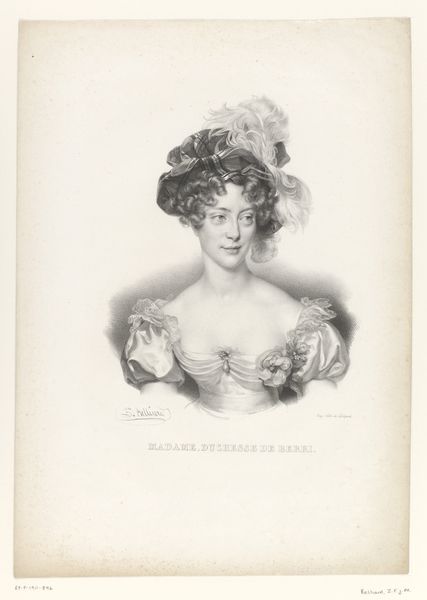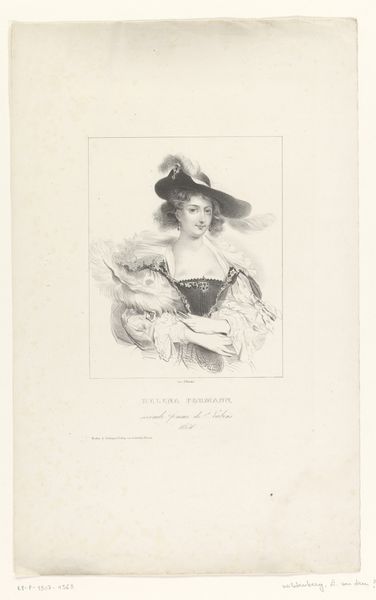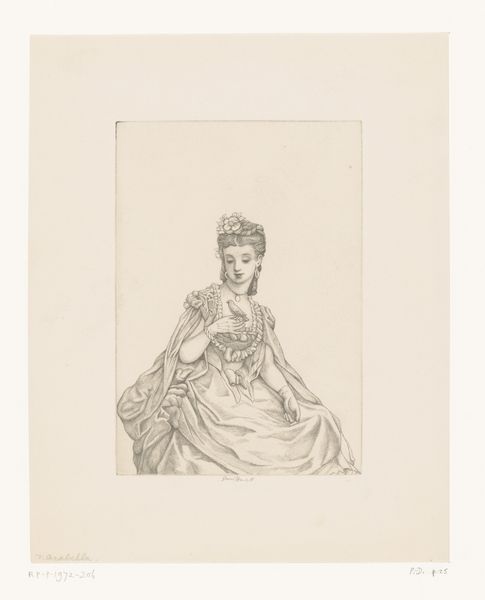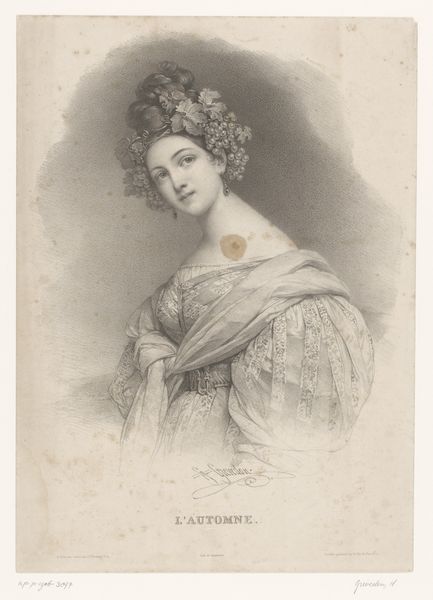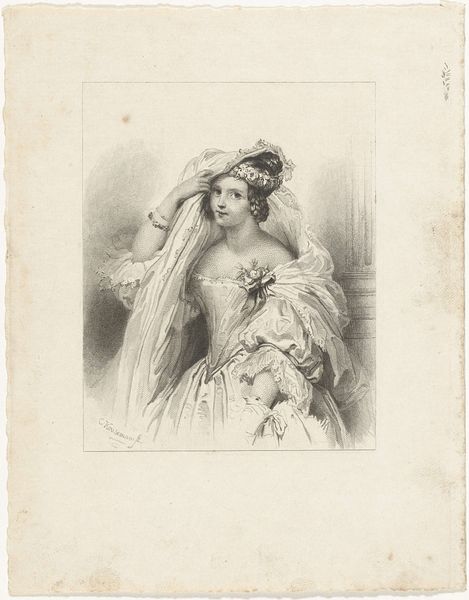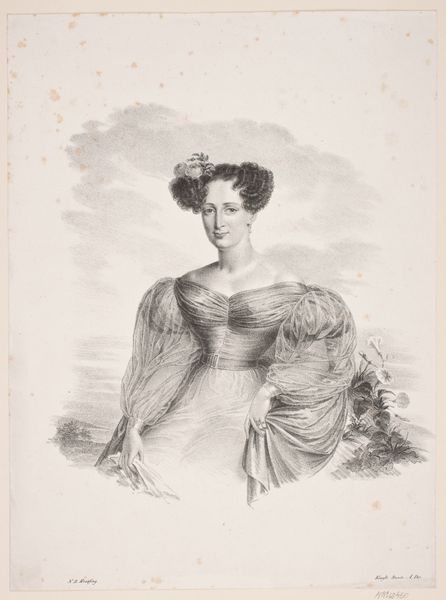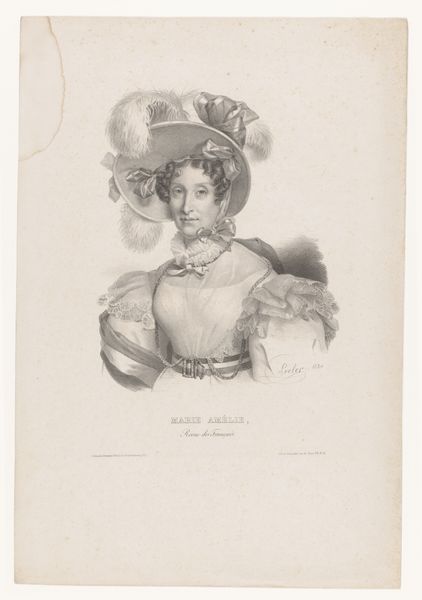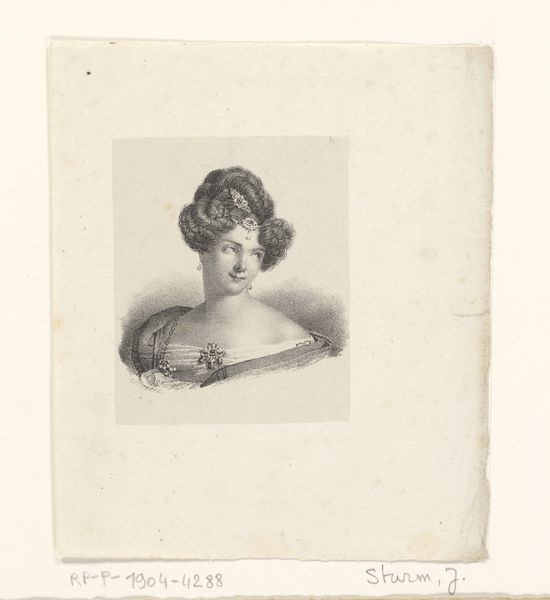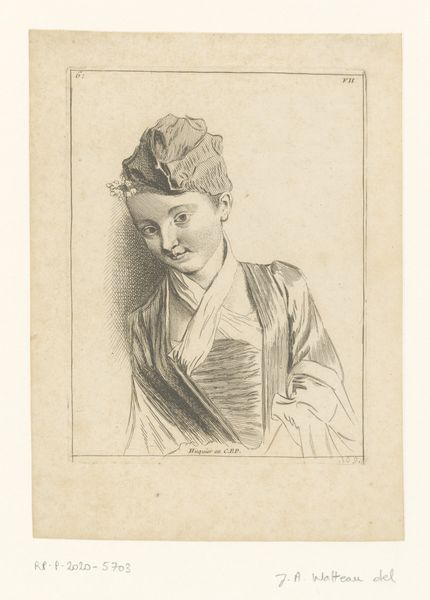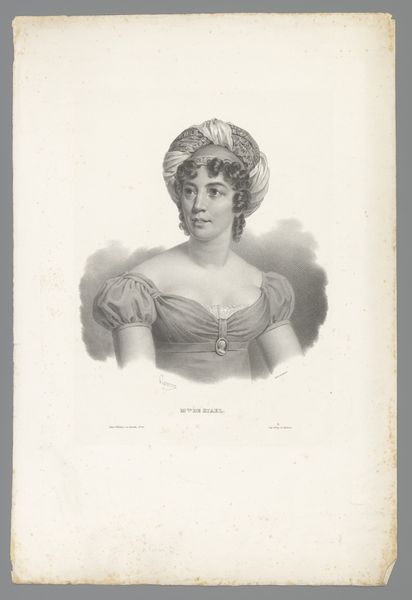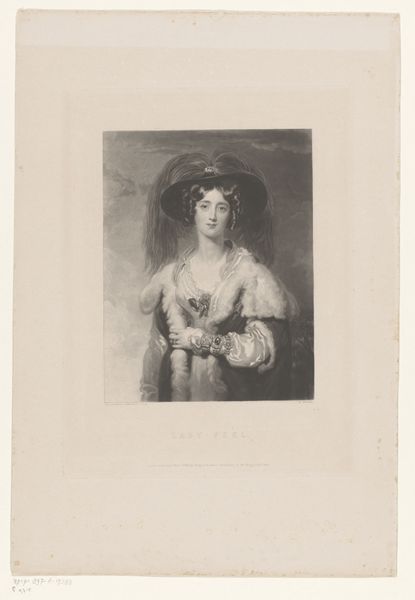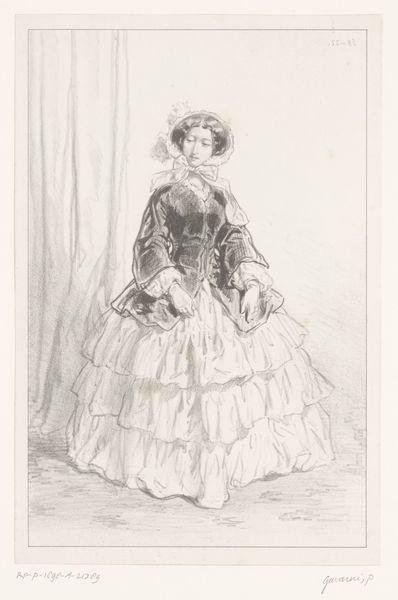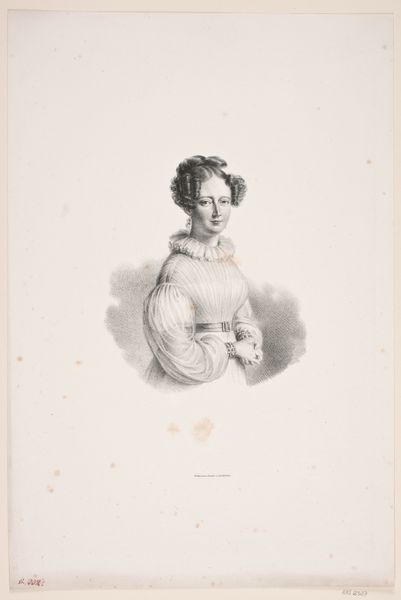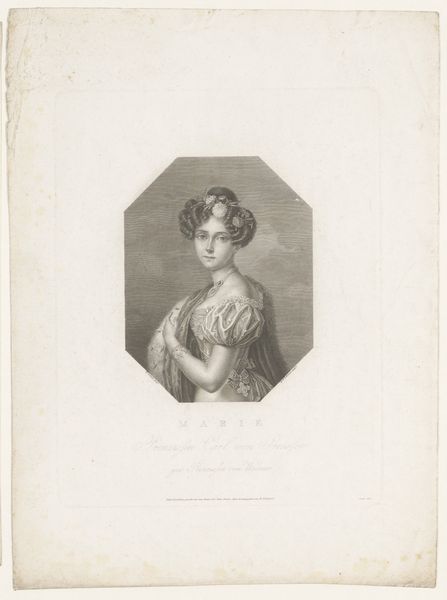
Portret van een onbekende dame, mogelijk Henriette Elisabeth Ising 1814 - 1864
0:00
0:00
henriphilippeheidemans
Rijksmuseum
drawing, pencil
#
portrait
#
pencil drawn
#
drawing
#
pencil sketch
#
pencil drawing
#
romanticism
#
pencil
#
realism
Dimensions: height 430 mm, width 350 mm
Copyright: Rijks Museum: Open Domain
This portrait of a woman, possibly Henriette Elisabeth Ising, was made by Henri Philippe Heidemans around 1837. It's rendered in graphite, a humble material, yet capable of great refinement. The technique here is lithography, a printmaking process that relies on the chemical repulsion of oil and water. The artist would have drawn the image on a stone with a greasy crayon, then treated the stone so that ink would adhere only to the drawn areas. This allowed for the creation of multiple impressions, widening access to portraiture. Consider the social implications: while oil painting remained the domain of the wealthy, lithography offered a more affordable alternative. Heidemans' skilled handling of graphite, mimicking the subtle gradations of light and shadow, elevates this print beyond mere reproduction. It reminds us that even in an age of mechanical reproduction, the artist's hand and eye remain crucial. This portrait challenges our assumptions about value, reminding us to look beyond the medium and appreciate the artistry inherent in the making.
Comments
No comments
Be the first to comment and join the conversation on the ultimate creative platform.
